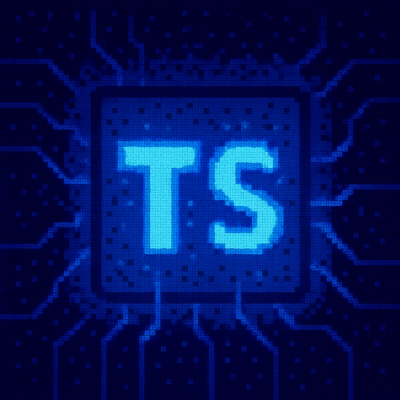
Security News
Critical Security Vulnerability in React Server Components
React disclosed a CVSS 10.0 RCE in React Server Components and is advising users to upgrade affected packages and frameworks to patched versions now.
auth0-ext-compilers
Advanced tools
This repository contains webtask compilers that enable custom programming models for Auth0 platform extensibility points.
This module is installed on the webtask platform via the webtask-mongo docker image.
To create a webtask that implements a specific extensibility point, you can use the wt-cli tool or a corresponding webtask API call. For example, to create a client-credentials-exchange extension you could call:
cat > custom_claims.js <<EOF
module.exports = function(client, scope, audience, context, cb) {
var access_token = {};
access_token['https://foo.com/claim'] = 'bar';
access_token.scope = scope;
access_token.scope.push('extra');
cb(null, access_token);
};
EOF
SECRET=$(openssl rand 32 -base64) && \
wt create custom_claims.js \
-p default-tjanczuk \
--meta wt-compiler=auth0-ext-compilers/client-credentials-exchange \
--meta auth0-extension=runtime \
--meta auth0-extension-name=credentials-exchange \
--meta auth0-extension-secret=$SECRET \
--secret auth0-extension-secret=$SECRET
An Auth0 extension is a webtask created in the Auth0 tenant's webtask container and associated with specific metadata properties as outlined in the table below.
| Name | Required? | Value |
|---|---|---|
auth0-extension | Yes | Must be set to runtime. |
auth0-extension-name | Yes | The name of the extensibility point in Auth0. This is used by Auth0 to select the set of webtasks to run in a specific place and circumstances of Auth0 processing. Available Extensibility Points |
auth0-extension-client | No | Auth0 extension points which only wish to execute extensions configured for a particular client_id will use this value to select the webtasks that should be run. |
auth0-extension-disabled | No | If set, disables the webtask. |
auth0-extension-order | No | Webtasks selected to run for a given extension point in Auth0 will be sorted following an increasing order of this numeric metadata property. If not specified, 0 is assumed. Order of webtasks with the same value of auth0-extension-order is indeterministic. |
auth0-extension-secret | No | Used to authorize calls from Auth0 to Webtasks. See below. |
Auth0 extensions are executed by issuing an HTTP POST request to the webtask URL from the Auth0 runtime. To ensure that only the Auth0 runtime and/or a specific Auth0 tenant can issue such requests, the requests use a secret-based authorization mechanism. If an extension webtask has been created with the auth0-extension-secret secret parameter, the value of that parameter MUST equal to the value of the Authorization: Bearer {secret} header of the HTTP POST request. To allow the Auth0 runtime to add the necessary header to the webtask request it is making, the same secret value is stored in the auth0-extension-secret metadata property. This setup can be achieved with the following:
SECRET=$(openssl rand 32 -base64) && \
wt create {file}.js \
--meta wt-compiler=auth0-ext-compilers/{specific-compiler} \
--meta auth0-extension-secret=$SECRET \
--secret auth0-extension-secret=$SECRET \
...
The authorization check is implemented as part of the webtask compiler for a specific extensibility point - see next section.
Different Auth0 extensibility points may present unique programming models to the end user with the use of webtask compilers. Webtask compilers for Auth0 extensibility points are implemented as part of this repository which is installed as a Node.js module in the webtask environment. This allows the use of wt-compiler metadata property to select a specific compiler, e.g. with:
wt create {file}.js \
--meta wt-compiler=auth0-ext-compilers/client-credentials-exchange \
...
Webtask compilers for Auth0 extension points also enforce the authorization check described in the previous section.
A generic compiler is provided (auth0-ext-compilers/generic) that does not adhere to any extension-specific programming model. Instead, this compiler is a light facade on top of the 2ary and 3ary webtask programming models. The compiler provides authorization of the incoming webtask request and then invokes the supplied function.
module.exports = function(ctx, cb) {
var scope = ctx.body.scope;
var access_token = {};
access_token['https://foo.com/claim'] = 'bar';
access_token.scope = scope;
access_token.scope.push('extra');
cb(null, access_token);
};
module.exports = function(ctx, req, res) {
var scope = ctx.body.scope;
var access_token = {};
access_token['https://foo.com/claim'] = 'bar';
access_token.scope = scope;
access_token.scope.push('extra');
res.writeHead(200, { 'Content-Type': 'application/json' });
res.end(JSON.stringify(access_token));
};
When building a compiler for a hook, all responses should be status code 200.
If the following guidelines are not followed, the client (auth0-ext) will not process the response correctly.
{
status: 'success' | 'error',
data: {}
}
Response should contain:
status = 'success'
Success conditions should be when the code ran to completion and returning the response in the data property.
Example response:
{
"status": "success",
"data": {
"user": {
"user_metadata": "object",
"app_metadata": "object",
// other properties are ignored
}
}
}
Response should contain:
status = 'error'
Error conditions should be when there is an error thrown in the script. This error object should be passed in to the data property.
Example response:
{
"status": "error",
"data": {
"stack": "ServerError: server error message\n at module.exports ...",
"message": "server error message",
"name": "ServerError"
}
}
FAQs
Webtask compilers for Auth0 platform extensibility points
We found that auth0-ext-compilers demonstrated a not healthy version release cadence and project activity because the last version was released a year ago. It has 40 open source maintainers collaborating on the project.
Did you know?

Socket for GitHub automatically highlights issues in each pull request and monitors the health of all your open source dependencies. Discover the contents of your packages and block harmful activity before you install or update your dependencies.

Security News
React disclosed a CVSS 10.0 RCE in React Server Components and is advising users to upgrade affected packages and frameworks to patched versions now.

Research
/Security News
We spotted a wave of auto-generated “elf-*” npm packages published every two minutes from new accounts, with simple malware variants and early takedowns underway.

Security News
TypeScript 6.0 will be the last JavaScript-based major release, as the project shifts to the TypeScript 7 native toolchain with major build speedups.